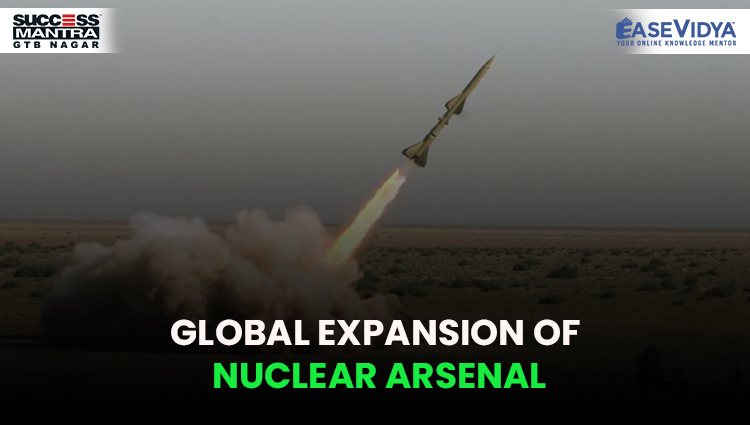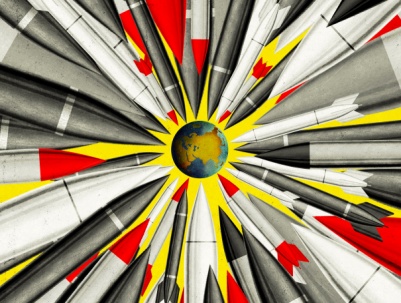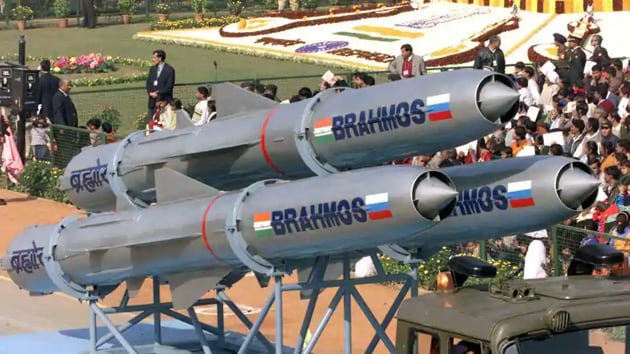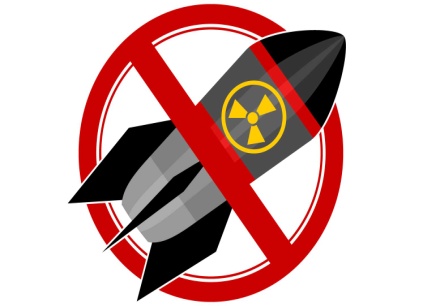
GLOBAL EXPANSION OF NUCLEAR ARSENAL
GLOBAL EXPANSION OF NUCLEAR ARSENAL

According to a recent report published in the SIPRI Yearbook 2021, the number of nuclear warheads which are ready and deployed have increased globally. The SIPRI Yearbook is released by the Stockholm International Peace Research Institute (SIPRI) which researches international armament and conflict. The SIPRI “Yearbook 2021” assesses the current state of armaments, disarmament and international security.
NINE NUCLEAR ARMED STATES
The nine nuclear armed states are: US, Russia, the U.K., France, China, India, Pakistan, Israel and North Korea. These countries together possessed an estimated 13,080 nuclear weapons at the start of 2021. Russia and the US together possessed over 90% of global nuclear weapons and have extensive and expensive modernisation programmes under way. Both the US and Russia have approved the extension of the New START treaty. The Treaty is the last remaining nuclear Russia-US arms control treaty which expired in February 2021. China’s nuclear arsenal consisted of 350 warheads up from 320 at the start of 2020. China is in the middle of a significant modernisation and expansion of its nuclear weapon inventory. India possessed an estimated 156 nuclear warheads at the start of 2021 compared to 150 at the start of last year, while Pakistan had 165 warheads, up from 160 in 2020. India and Pakistan are seeking new technologies and capabilities that dangerously undermine each other's defence under the nuclear threshold.
Low Levels of Transparency: The availability of reliable information on the status of the nuclear arsenals and capabilities of the nuclear-armed states vary considerably.
Largest Military Spenders: The growth in total spending in 2020 was largely influenced by expenditure patterns in the United States and China (first and second largest spenders respectively). India’s spending of USD 72.9 billion, an increase of 2.1% in 2020, ranked it as the third highest spender in the world.
IMPORTERS & SUPPLIERS OF MAJOR ARMS

- SIPRI identified 164 states as importers of major arms in 2016-20.
- Country Wise: The five largest arms importers were Saudi Arabia, India, Egypt, Australia and China, which together accounted for 36% of total arms imports.
- Region wise: The region that received the largest volume of major arms supplies in 2016-20 was Asia and Oceania, accounting for 42% of the global total, followed by the Middle East, which received 33%.
- The five largest suppliers in 2016-20 - the United States, Russia, France, Germany and China - accounted for 76% of the total volume of exports of major arms.
RECENT INSTANCES OF ARMED CONFLICT
- The territorial conflict between India and Pakistan over Kashmir. The situation in 2020 largely reverted to the status quo of relatively low levels of armed violence.
- In June 2020, for the first time in over five decades, the border tensions between China and India in the disputed eastern Ladakh region of Kashmir turned deadly.
- A new armed conflict broke out in the Tigray region of northern Ethiopia in November 2020 between federal government forces and the Tigray People’s Liberation Front, which killed thousands and forced more than 46, 000 refugees to flee into eastern Sudan.
WHAT IS NUCLEAR WEAPON?
Nuclear weapon is a device designed to release energy in an explosive manner as a result of nuclear fission, nuclear fusion, or a combination of the two. Fission weapons are commonly referred to as atomic bombs, and fusion weapons are referred to as thermonuclear bombs or, more commonly, hydrogen bombs. These have been used in the bombings of Hiroshima and Nagasaki in 1945.
TREATIES PREVENTING NUCLEAR PROLIFERATION

The Treaty on the Non-Proliferation of Nuclear Weapons: The NPT is an international treaty whose objective is to prevent the spread of nuclear weapons and weapons technology, to foster the peaceful uses of nuclear energy, and to further the goal of disarmament. The treaty was signed in 1968 and entered into force in 1970. Presently, it has 190 member states. It requires countries to give up any present or future plans to build nuclear weapons in return for access to peaceful uses of nuclear energy. It represents the only binding commitment in a multilateral treaty to the goal of disarmament by the nuclear-weapon States. Nuclear-weapon states parties under the NPT are defined as those that manufactured and exploded a nuclear weapon or other nuclear explosive devices before January 1, 1967.
India is one of the only five countries that either did not sign the NPT or signed but withdrew later, thus becoming part of a list that includes Pakistan, Israel, North Korea, and South Sudan. India always considered the NPT as discriminatory and had refused to sign it. India has opposed the international treaties aimed at non-proliferation since they were selectively applicable to the non-nuclear powers and legitimised the monopoly of the five nuclear weapons powers.
The Treaty Banning Nuclear Weapon Tests In The Atmosphere, In Outer Space And Under Water, also known as the Partial Test Ban Treaty (PTBT). The Comprehensive Nuclear-Test-Ban Treaty (CTBT) was signed in 1996 but has yet to enter into force.
Other related initiatives: Nuclear Suppliers Group, the Missile Technology Control Regime, the Hague Code of Conduct against Ballistic Missile Proliferation, and the Wassenaar Arrangement.
India’s Nuclear Weapon Program: India tested its first nuclear device in May 1974, and remains outside both the Treaty on the Non-Proliferation of Nuclear Weapons (NPT) and the Comprehensive Nuclear Test Ban Treaty (CTBT). However, India has a facility-specific safeguards agreement in place with the International Atomic Energy Agency (IAEA) and a waiver from the Nuclear Suppliers Group (NSG) allowing it to participate in global civilian nuclear technology commerce. It was admitted as a member into the Missile Technology Control Regime (MTCR) in 2016, Wassenaar Arrangement in 2017 and Australia Group in 2018. India maintains its official commitment to no-first-use of nuclear weapons.












0 Comment